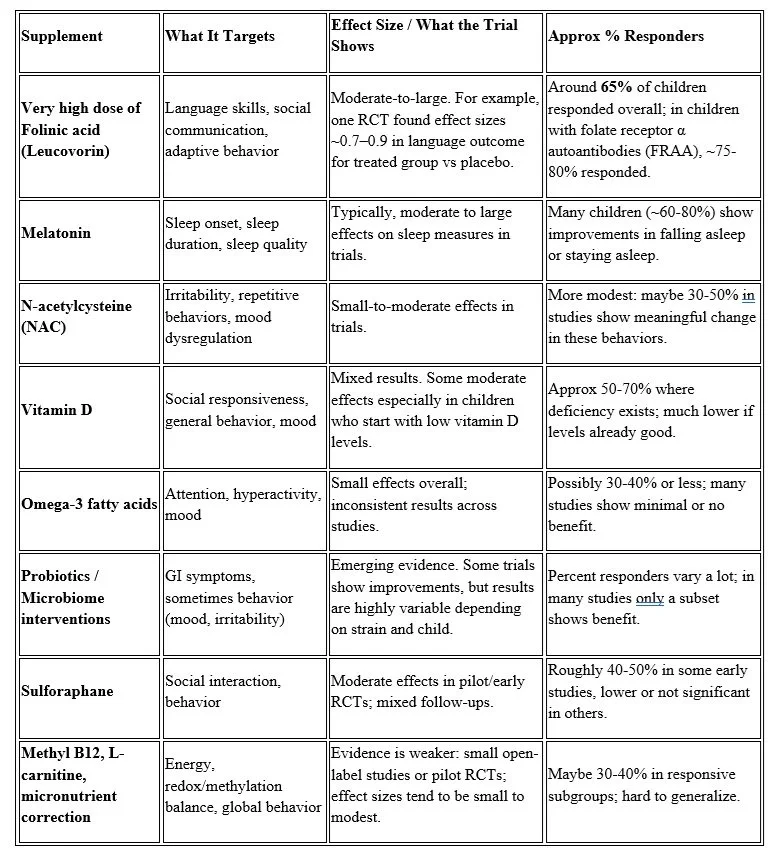Autism Supplement Options Unpacked: What Science Says
I often get asked by parents: “Which supplements actually help with autism?” Just like with ADHD, there’s plenty out there, but not everything is backed by good trials. While nothing matches the effects that we are seeing with our flagship Dynamical Neurofeedback® method, I’ve pulled together what the research has found - what works a little, what works more…
How Researchers Measure “Working”
When we say a supplement “works,” we usually mean one of two things:
Effect size: how much symptoms improve compared to placebo (small, moderate, large)
% Responders: what percentage of kids show a clinically meaningful improvement
These help us compare supplements more objectively.
Supplements with Clinical Study Evidence in Autism
Here are supplements tested in RCTs (or close) for autism, what symptoms they target, and how well they perform:
What This Means for Parents
Supplements can help in certain areas: sleep, behaviour (especially irritability or repetitive behaviours), sometimes speech, but usually not all symptoms at once.
Personal biology matters: For example, folinic acid works best in FRAA positive children. Vitamin D helps more if there’s a deficiency. One child might respond well to one supplement; another might not at all.
Expect modest changes: Even in the best trials, improvements are often incremental — not miracles. They accumulate over weeks to months, not days.
Where Dynamical Neurofeedback® Comes In
Here’s where neurofeedback differs: it aims to support the brain’s own regulation systems across multiple domains simultaneously. Instead of targeting one chemical or pathway (like folinic acid helps with folate metabolism, or melatonin helps sleep), this method works on brain regulation, coherence, adaptation, neuroplasticity…
In practice, this tends to translate to changes across several areas: sleep, mood, focus, emotional regulation, even speech and social engagement. Many families tell me they see improvements in many domains at once, which is rarely the case with a single supplement alone.
Having saif that - in our clinic we use Integrative approach to health. This blogpost is an example of how we combine Leucovorin supplementation with Dynamical Neurofeedback (R) to achieve increased and optimal outocomes.
Final Word
Supplements are useful tools in the autism toolkit. They can bring some relief in key areas, especially when tailored and when biology suggests they’ll help. But they usually don’t cover everything.
For parents wanting the broadest, most sustainable improvements — not just one or two symptoms — a regulated, well-applied Dynamical Neurofeedback® program tends to offer more comprehensive outcomes. If you’re curious about combining supplements with neurofeedback, or want a personalised plan, reach out for a free consultation.


